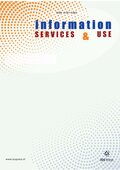Authors: Staley, David J. | Malenfant, Kara J.
Article Type:
Research Article
Abstract:
For academic librarians seeking to demonstrate the value of their libraries to their parent institutions, it is important to understand not only the current climate. We must also know what will be valued in the future so that we can begin to take appropriate action now. This document presents 26 possible scenarios based on an implications assessment of current trends, which may have an impact on all types of academic and research libraries over the next 15 years. The scenarios represent themes relating to academic culture, demographics, distance education, funding, globalization, infrastructure/facilities, libraries, political climate, publishing industry, societal values, students/learning
…and technology. They are organized in a “scenario space” visualization tool, reflecting the expert judgment of ACRL members as to their expectations and perceptions about the probability, impact, speed of change and threat/opportunity potential of each scenario. Finally, the study draws out implications for academic libraries. For scenarios which have been identified as high impact with a high probability of occurring, it is incumbent upon library directors and those who set strategic agendas for academic libraries to plan to act now upon these scenarios. This report reinforces the notion that academic libraries are part of a larger ecosystem, and librarians should be consistently scanning the environment to look for signs of the changes that may come. It includes an appendix with a suggested activity to engage library colleagues in stretching your imaginations and considering possible futures. This can build capacity to engage in strategic thinking and planning, supporting librarians in making better decisions now that can address a variety of possible futures.
Show more
Keywords: Academic libraries, librarians, futures research, scenario space, data visualization
DOI: 10.3233/ISU-2010-0614
Citation: Information Services & Use,
vol. 30, no. 1-2, pp. 57-90, 2010
Price: EUR 27.50





